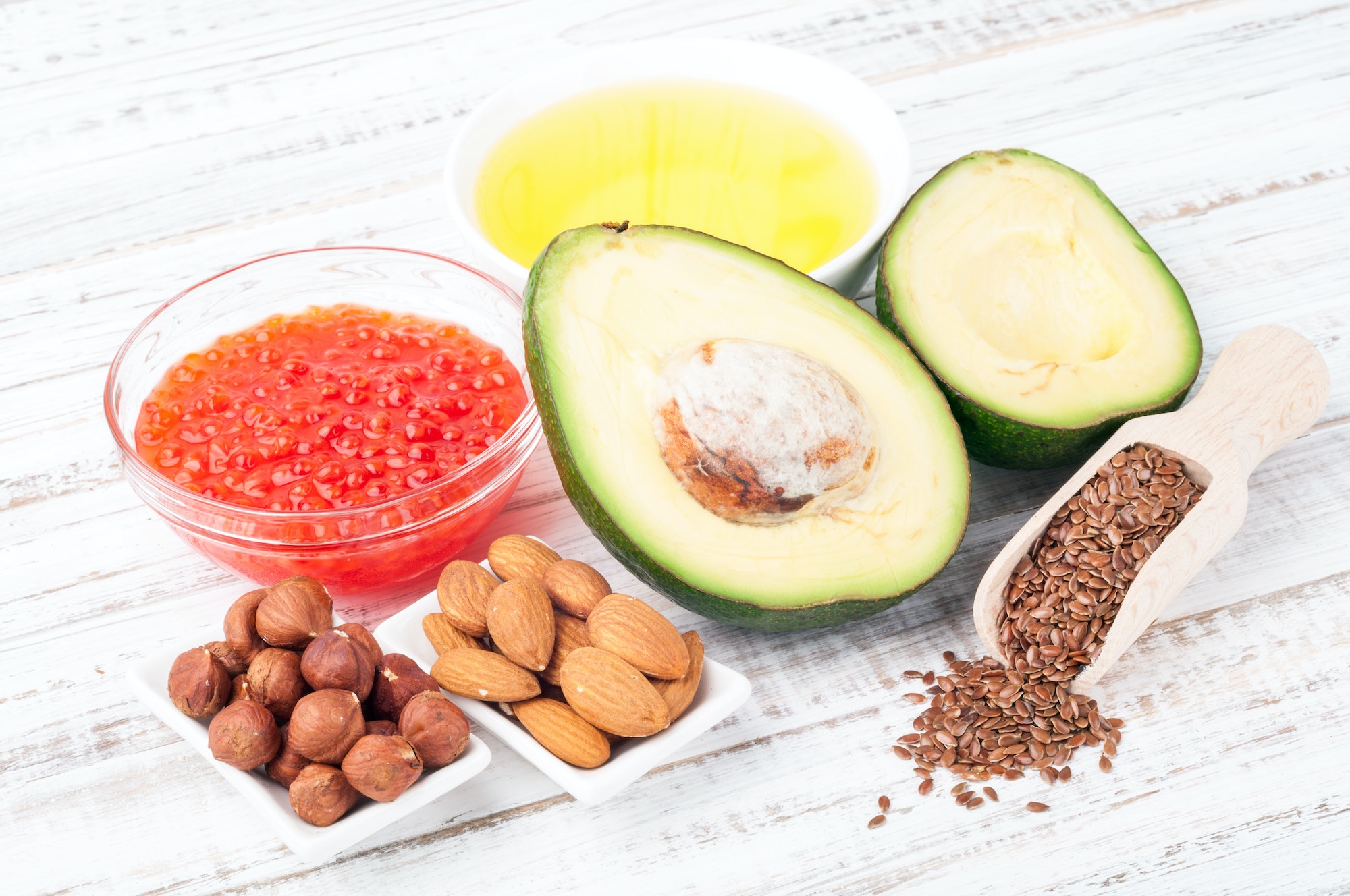Fats are important, but why?
What is the significance of fats for athletes?
Athletes rely on fats as a valuable source of fuel, supplying energy, aiding in the absorption of vital nutrients, and safeguarding organs and tissues. Despite the perception of dietary fat as detrimental to overall health and weight, it is crucial to acknowledge the essential role that fats play in promoting our overall well-being.
Dietary fats play a crucial role in the transportation of fat-soluble vitamins such as A, D, E, and K within the body. Additionally, fats aid in regulating body temperature and hormone production. For instance, cholesterol serves as a precursor for testosterone. Moreover, consuming fats in our diet is essential as they provide essential fatty acids like omega-3 and omega-6, which cannot be produced by the body.

Which fats are considered ``bad`` for athletes?
Traditionally, saturated fats and trans fats have been labelled as “bad” fats, while unsaturated fats and polyunsaturated fats have been considered “good” fats. Saturated fats are commonly found in meat and dairy products, while trans fats are present in processed foods like fried foods, cookies, and crackers. Trans fats have been regarded as the least healthy fats due to evidence suggesting that they can raise cholesterol levels and increase the risk of heart disease. However, the impact of individual saturated fatty acids on blood lipid levels varies based on their composition. For instance, lauric acid, which is abundant in coconut oil, actually reduces the ratio of total-to-high-density lipoprotein cholesterol by increasing high-density lipoprotein cholesterol.
Which fats are beneficial for athletes?
Athletes are recommended to include both monounsaturated fats and polyunsaturated fats in their diets as they are considered to be beneficial for their health. Monounsaturated fats, found in olive oil, avocados, and nuts, as well as polyunsaturated fats, present in fish (rich in omega-3), flaxseed oil, and walnuts, are categorized as “healthy” fats. This classification stems from the fact that they have shown potential in lowering cholesterol levels and decreasing the likelihood of heart disease.
Is there a positive impact on athletic performance from consuming fats?
At present, there is no evidence to support the idea that consuming foods high in fat or taking fatty acid supplements during exercise can enhance performance. Research suggests that it may have a detrimental effect on athletic performance. Nevertheless, including fats in our regular diet is crucial for maintaining adequate energy levels. Additionally, incorporating fats into our daily nutrition plan helps prevent deficiencies in important fat-soluble vitamins (A, E, and K), omega-3 and omega-6 fatty acids, and potentially iron and calcium.

What is the recommended daily intake of fat for athletes?
In the UK, the current general recommendations state that fats should contribute to approximately 35% of our daily energy intake. However, athletes should refrain from consuming less than 20% of their total energy from fat regularly to prevent deficiencies in fat-soluble vitamins and essential fatty acids. The consumption of saturated fats should not exceed 10% of our daily energy intake, while trans fats should be limited to no more than 2% of our total energy intake.
What is the mechanism by which the body utilizes fats?
There are various functions of dietary fats in the body. They serve as a source of fuel for most of our body’s cells and are particularly important for contracting skeletal muscle. In addition, fats play a role in safeguarding crucial organs like the heart, liver, spleen, kidneys, brain, and spinal cord. These organs are shielded by a layer of adipose tissue to protect against any potential injuries. Approximately 2% – 4% of total body fat is stored around these vital organs, and different types of fats can also be incorporated into our cell membranes.
Can consuming excessive fat impact athletic performance?
Fat is the most energy-dense macronutrient, providing approximately 9 kcal per gram compared to 4 kcal per gram for both carbohydrates and protein. This makes it important for athletes to be cautious about consuming excessive amounts of fat, as it can lead to consuming too many calories. This is particularly relevant in sports where a low body fat mass is desirable. Consequently, athletes in such sports may choose to limit their fat intake. Additionally, in sports that involve high-intensity exercise, consuming too much fat instead of carbohydrates can have a detrimental effect on performance. Research has demonstrated that high-fat consumption and ketogenic diets can have a negative impact on exercise and economy in endurance-based sports.
In conclusion, fats play a significant role in the overall well-being and performance of athletes. They serve as a valuable source of fuel, aid in nutrient absorption, and protect vital organs and tissues. Despite the misconception that dietary fats are detrimental to health, it is important to acknowledge their essential role in promoting overall well-being. Fats are involved in transporting fat-soluble vitamins, regulating body temperature, and hormone production.
Athletes should aim to include fats in their diet, with recommendations stating that fats should contribute to approximately 35% of daily energy intake. It is important to avoid deficiencies in fat-soluble vitamins and essential fatty acids by consuming at least 20% of total energy from fats. While saturated and trans fats are generally considered “bad” fats, monounsaturated and polyunsaturated fats found in olive oil, avocados, nuts, fish, flaxseed oil, and walnuts are considered beneficial for health. However, athletes should be cautious about consuming excessive amounts of fat, as it can lead to consuming too many calories, particularly in sports where a low body fat mass is desirable.
In high-intensity exercise sports, consuming too much fat instead of carbohydrates may negatively impact performance. While there is no evidence to support the idea that consuming high-fat foods or fatty acid supplements during exercise enhances performance, including fats in the regular diet is crucial for maintaining adequate energy levels and preventing deficiencies in important nutrients.





